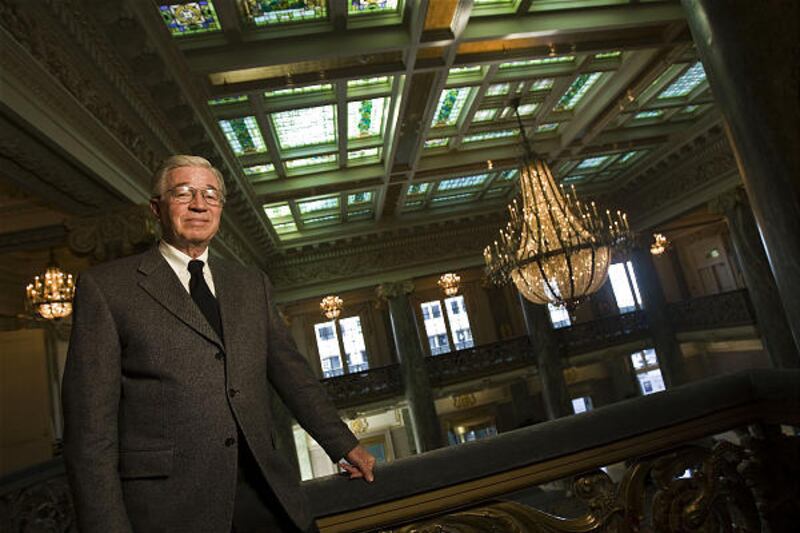Mark H. Willes will take over the helm of seven companies in March when he becomes president and chief executive officer of Deseret Management Corp., which oversees for-profit commercial enterprises affiliated with The Church of Jesus Christ of Latter-day Saints, including the Deseret News.
He said Thursday that he is unsure if changes will happen at the Deseret News any faster than at the other six companies.
The newspaper is part of an industry that Willes has experienced at the top level. In the 1990s, he was chairman of the board, president and chief executive officer of Times Mirror Co., the parent of the Los Angeles Times, and he later became the Times' publisher.
When asked whether the News will get more of his focus when he becomes president and chief executive officer of Deseret Management, he replied: "I don't know. It's tempting, but I really have to spend my time on both the issues and the opportunities" at all the companies.
Those other companies are Beneficial Financial Group, Bonneville International Corp., Deseret Book Co., Hawaii Reserves Inc., Temple Square Hospitality Corp. and Zions Securities Corp.
"There clearly are lots of issues and opportunities with the Deseret News," Willes said. "I suspect there are lots of issues and opportunities with the others, too."
Willes, 67, said he is unsure what changes, if any, will occur in Deseret Management's companies. He takes over next month from Rodney H. Brady, 76, who is retiring after 13 years as Deseret Management's president and CEO.
"I have, at this point, the information of an outsider, which isn't much," Willes said with a laugh. "I'll know a whole lot more a couple of months from now, but then I probably wouldn't tell you, even if I knew it."
Ditto for any changes at the Deseret News. "I haven't talked to the Deseret News people yet, but we're going to have those conversations," he said. "The Deseret News, as I understand it, is growing circulation — fantastic. Are there ways to make the paper more exciting, more relevant, more useful? I hope so."
Things certainly were exciting at Times Mirror and the Los Angeles Times, where Willes landed after stints at the Federal Reserve banks in Philadelphia and Minneapolis and 15 years in management at General Mills Inc. He caught criticism at Times Mirror for coping with economic troubles by cutting 2,000 jobs and shuttering New York's Newsday.
But he contends that he made the newspapers more relevant in several ways, including some changes that initially riled longtime journalists.
One change was adding weekly localized sections to the Los Angeles Times. Another was bundling the Times with La Opinion, a Spanish-language newspaper that was half-owned by Times Mirror and half-owned by family members of La Opinion's founder.
During his tenure, readership grew through those and other efforts, despite skeptics in the industry.
"What we were trying to do was find a way to make the newspaper relevant for more people to read it so that they would see themselves, their community, their issues, their interests in the paper. And we were pleased with the success we had," Willes said.
The Deseret News in the past year has added the Mormon Times section, which Willes initially considered a "gutsy move," but akin to the localized sections the Times instituted to reach a particular audience. "And then my second reaction was, if they do this well, this could be very interesting," he said.
Unlike many people in the newspaper industry, Willes believes print versions of newspapers have a strong future. The Internet contains "a lot of misinformation (that) gets taken for fact" and leads to customers doing specific searches for information, he said. But a printed newspaper draws people to stories "you wouldn't otherwise be interested in." What's more, he said, market research indicates that people enjoy the acts of sitting down and holding a newspaper, scanning it and flipping the pages back and forth.
Will the Internet be the death of printed papers? Many people incorrectly predicted online commerce would ruin in-store shopping, Willes said. "Stores are not emptying. Has Internet shopping gone up? Yes, but people love the experience of being in a store."
And while people like "a little international news" and information about other "galactic things," Willes said, they really want to know about their town, their mayor, their family and their neighbors.
"If you can find a way to capture that," he said, "there's probably still a role for newspapers."E-MAIL: bwallace@desnews.com

